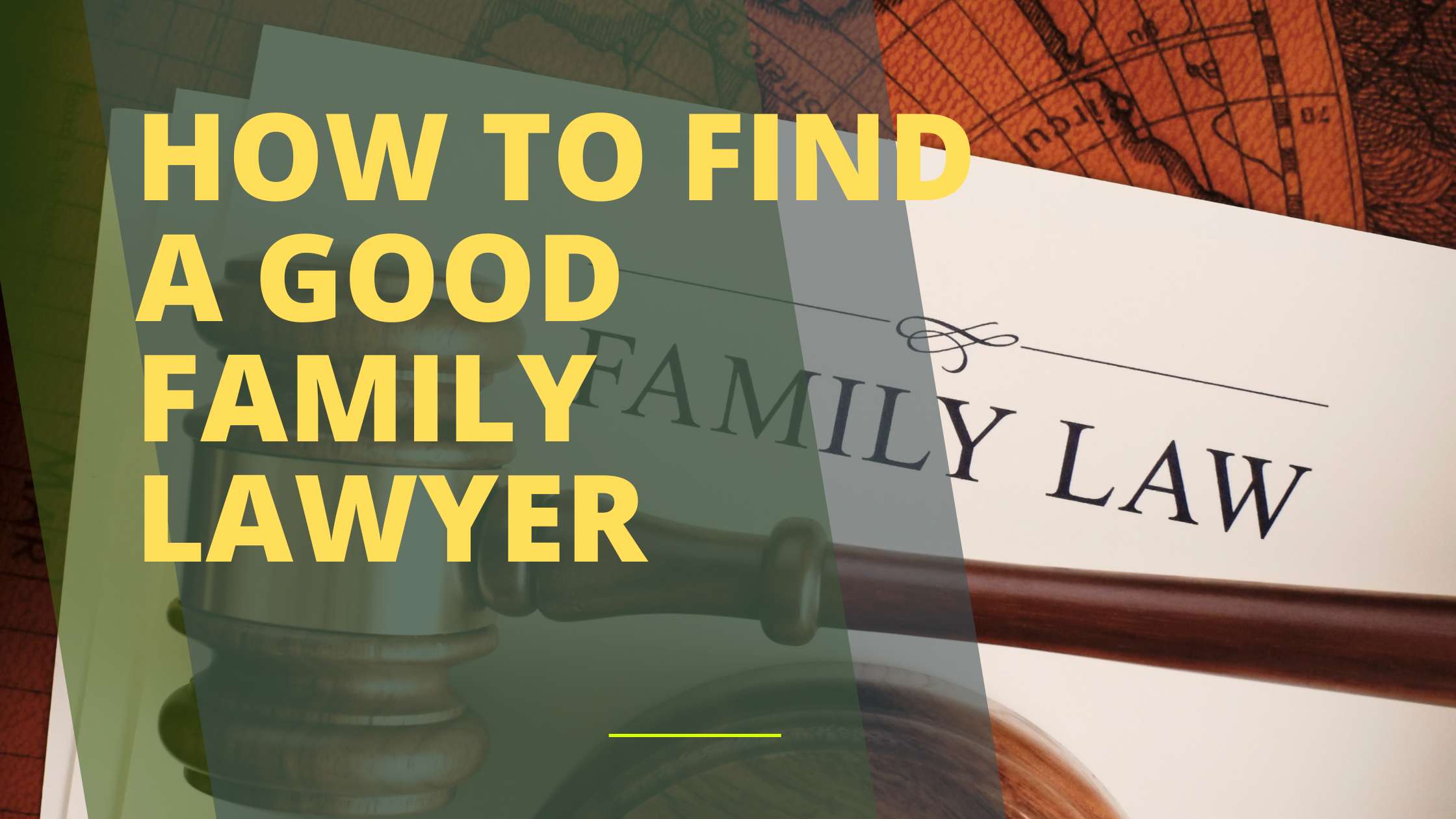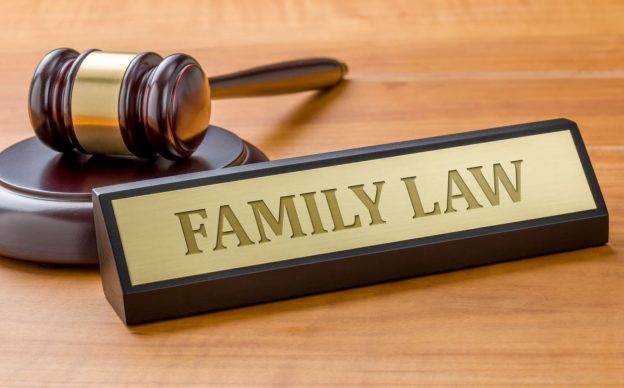How to Find a Good Family Lawyer

To find a good family lawyer, conduct thorough research and ask for personal recommendations from trusted sources. Finding a good family lawyer is crucial when dealing with legal matters that involve your family’s well-being.
Whether you are going through a divorce, child custody battle, or adoption process, having the right legal representation can make all the difference. The question is, how do you find a good family lawyer? The answer lies in conducting thorough research and seeking personal recommendations from trusted sources.
This article will provide you with practical tips and insights on how to locate a capable family lawyer, ensuring that you make the best possible choice for your unique situation. So, let’s dive in and discover the key steps to finding a good family lawyer.
1. Researching Family Lawyers
When it comes to finding a good family lawyer, thorough research is essential to ensure you choose someone who is not only competent but also understands your unique needs. Researching family lawyers can be done in several ways, including utilizing online resources, contacting local bar associations, and seeking recommendations and referrals from trusted sources.
1.1 Online Resources
One of the most convenient ways to start your search is by exploring online resources. The internet provides a wealth of information about family lawyers in your area, enabling you to review their qualifications, experience, and specialization. Websites like Avvo, Justia, and FindLaw offer comprehensive directories where you can search for family lawyers based on location, practice area, and client reviews. Remember to read through client testimonials to gain insight into the experiences others have had with the lawyer you are considering.
1.2 Local Bar Associations
Local bar associations also offer valuable resources when it comes to finding a good family lawyer. These associations often maintain listings of reputable lawyers in your area, making it easier for you to narrow down your choices. Additionally, bar associations may have referral services that can match you with a suitable family lawyer based on your specific needs. Contact your local bar association and inquire about their lawyer referral programs or ask for a list of trusted family lawyers in your community.
1.3 Recommendations And Referrals
Seeking recommendations and referrals from trusted sources is another effective way to find a good family lawyer. Reach out to friends, family members, or colleagues who have been through similar legal situations and ask for their recommendations. Personal referrals often carry more weight than online reviews, as they come from individuals who have firsthand experience working with a particular lawyer. If you know any lawyers who specialize in other areas of law, they might also be able to recommend a reliable family lawyer.
Remember, each case is unique, and what works for one person may not work for another. Keep in mind your specific needs, budget, and preferred communication style when choosing a family lawyer. By dedicating time to researching family lawyers through online resources, local bar associations, and seeking recommendations and referrals, you increase your chances of finding a good family lawyer who will guide you through your legal journey.
2. Evaluating Potential Lawyers
Evaluate potential lawyers to find a reliable family lawyer. Look for experience, specialization in family law, and positive client reviews to ensure you make the right choice.
2.1 Reviewing Experience And Specialization
When searching for a family lawyer, it’s crucial to review the experience and specialization of potential candidates. Look for attorneys who have a proven track record in family law and have handled cases similar to yours. Specialization in areas such as divorce, child custody, or adoption can provide the expertise needed to navigate the complexities of family legal matters.
2.2 Considering Availability And Responsiveness
Availability and responsiveness are essential qualities in a family lawyer. Ensure that the attorney can allocate sufficient time to your case and promptly respond to your inquiries. Consider their workload and how accessible they will be throughout the legal process. Good communication and consistent availability can make a significant difference in the effectiveness of legal representation.
2.3 Assessing Communication And Compatibility
Assessing communication and compatibility with a family lawyer is pivotal. Evaluate how well the lawyer listens to your concerns, provides clear explanations, and establishes a rapport. Compatibility is crucial for a harmonious attorney-client relationship, enabling open dialogue and understanding. Choose a lawyer who effectively communicates and with whom you feel comfortable.
3. Checking Credentials And Reputation
When it comes to finding a reliable family lawyer, checking their credentials and reputation is crucial. This step ensures that the lawyer you choose has the necessary qualifications and a good track record of success. By verifying licensing and certification, checking professional associations and memberships, as well as reading client reviews and testimonials, you can make an informed decision. Let’s dive into each of these aspects in more detail.
3.1 Verifying Licensing And Certification
Before finalizing your decision, it’s important to verify the licensing and certification of a family lawyer. This helps you ensure that they have the legal authority to practice law in your jurisdiction. You can usually find this information on the lawyer’s website or by contacting the relevant regulatory body. Look for certifications that demonstrate their expertise in family law, such as board certifications or specialized training.
3.2 Checking Professional Associations And Memberships
Another way to assess a family lawyer’s credibility is by checking their professional associations and memberships. Being a member of reputable organizations and associations indicates that the lawyer is actively involved in their field and committed to upholding certain ethical and professional standards. Look for memberships in national or state bar associations, family law associations, or other legal organizations specific to your country or region.
3.3 Reading Client Reviews And Testimonials
Reading client reviews and testimonials is an invaluable source of insight when evaluating the reputation of a family lawyer. These reviews provide firsthand accounts of other clients’ experiences, giving you a glimpse into the lawyer’s professionalism, expertise, and success rate. Online review platforms, law firm websites, and social media pages are common places to find client feedback. Pay attention to recurring themes, positive or negative, and consider how they align with your specific needs and expectations.

Credit: bhtampa.com
4. Meeting And Consulting
Once you have conducted thorough research and shortlisted potential family lawyers, it is essential to meet them in person for a consultation. This meeting will allow you to assess the lawyer’s expertise, experience, and suitability for your specific case. Additionally, it gives you the opportunity to ask questions and discuss any concerns you may have.
4.1 Scheduling An Initial Consultation
To begin your journey in finding the right family lawyer, schedule an initial consultation with each of the potential candidates. This allows you to meet face-to-face and evaluate whether they are the right fit for your needs. When setting up the appointment, ensure to provide a brief overview of your case and inquire about any paperwork or documents that may be required for the meeting.
4.2 Preparing Questions And Concerns
Prior to the consultation, prepare a list of questions and concerns that you would like to discuss with the lawyer. Consider the specific details of your case and the areas that you would like to address. Be sure to include any uncertainties or doubts you may have, as this meeting is an opportunity to clarify and gain insight into your legal situation.
Having a well-prepared list of questions and concerns will help you make the most out of your consultation and ensure that all necessary topics are covered during the meeting. It will also demonstrate your seriousness and commitment to finding the right lawyer for your family legal matters.
4.3 Assessing The Lawyer’s Approach And Strategy
During the consultation, pay close attention to the lawyer’s approach and strategy towards your case. Assess their ability to listen actively and understand your needs. Are they genuinely interested in helping you and prioritizing your best interests? Do they analyze your case comprehensively and provide practical advice?
It is crucial to assess whether the lawyer’s approach aligns with your expectations and preferred style of handling legal matters. Consider whether their strategy resonates with you and makes you feel confident about their ability to represent you effectively. A good family lawyer should exhibit professionalism, expertise, and empathy while providing clear explanations and guidance for your specific situation.
5. Considering Fees And Costs
When it comes to hiring a family lawyer, considering the fees and costs is a crucial aspect. Understanding the financial aspects of hiring a family lawyer can help you make an informed decision and avoid any financial surprises down the line. Here are some important factors to consider when it comes to fees and costs:
5.1 Understanding Fee Structures
Before finalizing a family lawyer, it’s essential to understand their fee structures. Some lawyers charge an hourly rate, while others may work on a flat fee or offer a retainer arrangement. Understanding how the lawyer charges for their services will help you assess the overall cost and make a well-informed decision.
5.2 Inquiring About Additional Costs And Expenses
Aside from the lawyer’s fees, it’s important to inquire about any additional costs and expenses that may arise during the legal process. These could include court filing fees, expert witness fees, or costs related to document preparation. Being aware of these additional expenses upfront can help you budget and avoid financial strain.
5.3 Negotiating Payment Plans And Agreements
When dealing with legal fees, it’s essential to discuss and negotiate payment plans and agreements with your family lawyer. Some lawyers may be open to creating a structured payment plan that aligns with your financial situation. Openly discussing payment arrangements can help alleviate any financial stress during the legal process.

Credit: www.wikihow.com

Credit: www.wikihow.com
Conclusion
Legal matters can be daunting, but finding the right family lawyer can make a significant difference. By considering experience, reputation, and communication, you can ensure your family’s well-being. Researching and interviewing potential lawyers will empower you to make an informed decision.
Remember, a good family lawyer is an invaluable asset in navigating legal complexities.
Amelia Justiceberg, a distinguished legal luminary, thrives on the intersection of empathy and legal acumen. As a prominent family law attorney, she orchestrates compassionate resolutions amidst complex dynamics. Justiceberg's courtroom finesse and dedication to fairness define her practice. Beyond litigation, she ardently advocates for social justice, solidifying her reputation as an influential force in the legal landscape.






